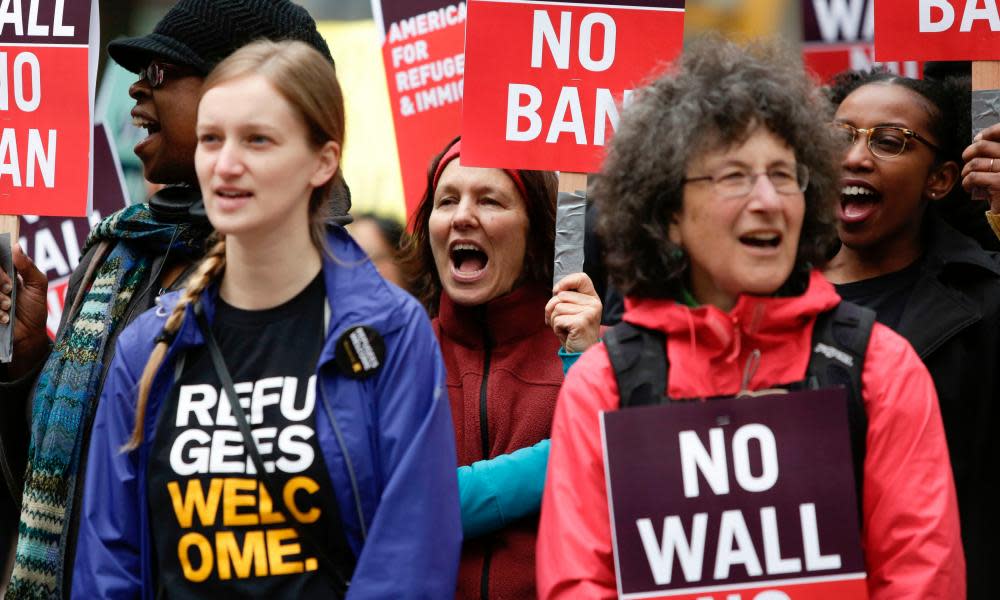Donald Trump poised to expand travel ban as review period expires on Sunday

Donald Trump is poised to revisit his controversial travel ban over the weekend as a critical deadline is set to expire on Sunday, meaning the president could extend or even expand travel restrictions already imposed on six Muslim-majority countries.
In March, Trump issued a revised executive order that sought to suspend the US refugee programme for 120 days and limit for 90 days visa issuances to travelers from Iran, Sudan, Syria, Somalia, Libya and Yemen, while the Department of Homeland Security (DHS) reviewed vetting procedures.
The supreme court allowed a restricted version of the ban to come into effect in June. That means the 90-day visa limit will be reached on Sunday.
DHS confirmed that last week it provided the administration with a classified security report examining the vetting process for entry into the US. The report is likely to be the basis of Trump’s decision to act before Sunday’s deadline. It includes information on countries worldwide, meaning the president could even extend restrictions to locations not included in the original order.
Last week, Trump hinted he was prepared to extend and expand the ban. After a terrorist attack in London, he tweeted: “The travel ban into the United States should be far larger, tougher and more specific – but stupidly, that would not be politically correct!”
Citing unnamed sources, the Wall Street Journal reported on Friday that the DHS report had identified 17 countries that were failing to comply with vetting standards, such as issuing reliable passports and identifying known terrorists to the US.
The report was said to conclude that around half those countries had since changed procedures as the prospect of being included in a new ban loomed.
If the restrictions are substantially revised, the decision is likely to have serious consequences for the supreme court challenge to Trump’s order, potentially delaying a full hearing currently due to take place on 10 October.
The president’s March order was blocked by a series of federal district and appeals courts before the supreme court allowed a limited version to go into effect. Targeted visa applicants and refugees with “bona fide” ties to the US were allowed to enter the country under the temporary ruling, leaving the nine justices to consider in the autumn whether the ban targeted Muslims unconstitutionally and if Trump had exceeded his executive authority.
The March order was Trump’s second attempt to ban travel for refugees and travelers from certain Muslim-majority countries. In January the administration issued a more expansive order that was chaotically rolled out, blocked in the courts and later rescinded.

 Yahoo News
Yahoo News 
